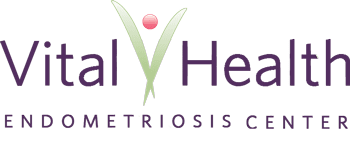Menopause represents the point in a woman’s life where her ovaries cease to ovulate, marking the end of fertility, levels of estrogen and progesterone drop and the menstrual cycle ceases. The average age of menopause is 51, with most women reaching menopause between 45 and 55 years of age. While menopause represents a single event in time (the strict definition is “the point at which menstrual periods have been absent for 12 months”), if a woman enters menopause naturally her body will undergo a gradual transition spanning as long as a decade, and often characterized by irregularities in the menstrual cycle, mood swings and irritability, hot flashes and vaginal dryness. This phase of transition immediately prior to menopause is referred to as perimenopause and affects each woman differently. Sometimes a woman will enter menopause suddenly without the transitional period of perimenopause, such as in the event of surgical removal of the ovaries (surgical menopause). Once a woman has passed into menopause she is said to be postmenopausal.

While perimenopause and menopause are often associated with various symptoms, post-menopause may place a woman at increased risk of developing a number of health conditions. For many women facing menopause there are two concerns: Firstly, coping with the symptoms of the menopausal transition and, secondly, staying fit and healthy into post-menopause.
Symptoms of perimenopause and early menopause
Each woman experiences menopause differently. Some women experience few if any symptoms while others experience a range of physical and psychological symptoms that interfere with her quality of life. Furthermore, symptoms can vary from mild to severe and may fluctuate over time.
- Irregular vaginal bleeding
- Changes in the menstrual cycle (periods occurring more or less frequently, irregularities in the cycle, changes in the amount of menstrual bleeding)
- Hot flashes and night sweats (vasomotor symptoms)
- Vaginal dryness, itching, and irritation
- Urinary tract infections, urinary frequency, urgency and incontinence (leaking urine), including stress incontinence (leaking urine when straining, coughing or laughing)
- Insomnia (difficulties falling asleep and/or staying asleep)
- Fatigue
- Memory problems
- Mood swings
- Weight gain
- Skin changes (wrinkles and worsening of adult acne)
- Hirsutism (abnormal hair growth)
- Loss in muscle tone
Managing the symptoms of perimenopause and early menopause
Treatment for menopausal symptoms will vary depending on the nature, duration, and severity of a woman’s symptoms. Given symptoms vary so widely between women and over time, treatment needs to be individualized to the specific symptoms and needs of the patient.
Women who are experiencing irregular bleeding associated with perimenopause may benefit from the oral contraceptive pill to help regulate their cycle. Other sources of irregular bleeding should be ruled out, however, before commencing this treatment.
Some women may benefit from estrogen-only or combined estrogen and progesterone hormone replacement therapy (HRT). HRT can be administered orally (in pill form) or transdermally (via patch, cream or gel). HRT can also be bioidentical, meaning that the administered hormones are chemically identical to the hormones that were naturally produced by the ovaries. Bioidentical HRT is administered transdermally in the form of creams or gels.
While HRT is often effective in reducing common menopausal symptoms, such as vaginal dryness and hot flashes, combined HRT has been found to be associated with an increased risk of heart attack, stroke and breast cancer while estrogen-only HRT was found to increase the woman’s risk of stroke and endometrial cancer (in women who have not had a hysterectomy). For these reasons, the type, dose, and duration of HRT needs to be carefully considered, weighing up the pros and cons, and other risk factors for the aforementioned conditions need to be carefully discussed by your physician when deciding which treatment to pursue.
HRT is advised when the benefits outweigh the risks and should be prescribed at the lowest effective dose for the shortest possible time to keep associated risks to a minimum.
Hormonal creams, gels and pessaries, and non-hormonal lubricants and vaginal moisturizers may be applied vaginally to alleviate vaginal dryness and associated painful intercourse.
A number of selective serotonin reuptake inhibitors (SSRIs), a class of antidepressants, have been found to be effective in reducing hot flashes in many menopausal women, as has the anti-seizure medication, gabapentin. As with other treatments, however, the benefits need to be weighed up against the potential disadvantages. Antidepressants, for example, are associated with various side effects including sexual dysfunction.
Short term use (up to 6 months) of the herbal preparation, Black Cohosh, has been found to be an effective alternative in reducing hot flashes with minimal associated side effects and certain phytoestrogens, including the isoflavones, genistein, and daidzein, have been found to help alleviate a range of menopausal symptoms. Compared to natural estrogens, such as estradiol, phytoestrogens (plant estrogens) are far less potent. This does not, however, mean that they are necessarily safer than regular hormone replacement therapies. Some patients also report finding relief of mild hot flashes by taking Vitamin E supplements, although this link is anecdotal.
Importantly, there are several treatment options available to reduce and alleviate the symptoms of menopause. A multi-disciplinary approach can help to maximize symptom relief while minimizing side effects.
Health problems associated with post-menopause
Post-menopause has been found to be associated with a number of health conditions, including:
- Osteoporosis (reduction in bone mineral density, increasing the risk of fractures)
- Cardiovascular disease (heart disease and stroke)
- Thyroid disease
- Gallbladder disease
- Breast cancer
- Colon cancer
- Cervical cancer
- Uterine cancer
Naturally, post-menopausal women want to remain fit, vibrant and healthy. The best way of ensuring continuing good health is to be proactive about health risks via participation in appropriate screening programs and to take preventative measures to promote continuing health.
Screening and preventative medicine
Comprehensive screening is recommended for the aforementioned health conditions associated with post-menopause. Participating in routine screening will help ensure early diagnosis should any of these health problems arise and will improve the chance of successful treatment and recovery.
The best preventative medicine is leading an active, healthy lifestyle. Living healthily plays an important role in reducing the risk of developing cardiovascular disease and cancer, the two leading causes of mortality in post-menopausal women. Incorporating regular exercise into your daily and weekly routine, improving your diet, giving up smoking, engaging in stress management and relaxation techniques are all readily accessible ways of making a big difference to your over all health and preserving your health for the coming years.
Osteoporosis is a serious condition associated with post-menopausal declines in bone mineral density. While there are treatments to help manage osteoporosis, there is no cure and therefore prevention is preferable.
Certain lifestyle changes can help reduce your risk of developing osteoporosis, including ceasing smoking, reducing alcohol intake, exercising regularly to build strength, and eating a healthy, balanced diet with sufficient calcium and vitamin D. Vitamin D and calcium supplements may be prescribed in patients already showing signs of osteoporosis or osteopenia (a precursor to osteoporosis). Certain medications may also be prescribed to help reduce bone mineral density loss and to strengthen bone.
An integrative approach to the menopausal transition and beyond
At the Vital Health Endometriosis Center, we offer specialized integrative care to patients who are transitioning into menopause, whether it be natural menopause or surgical menopause. We will work with you to provide individualized treatments to help manage any menopausal symptoms you may be having and to empower and guide you in leading a lifestyle that promotes optimal health and quality of life into post-menopause.
